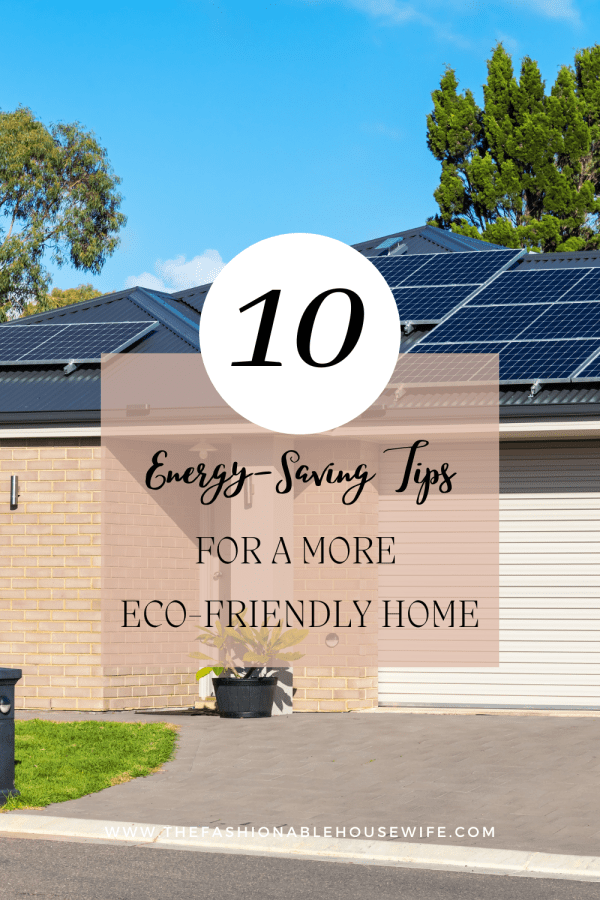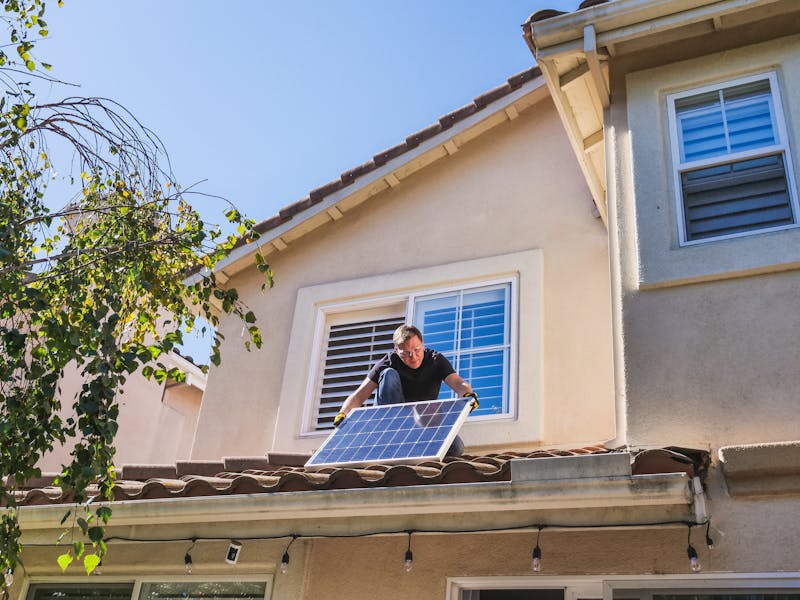10 Energy-Saving Tips for a More Eco-Friendly Home

In today’s world, energy conservation does not strictly relate to conserving the cost of utilities but a shift in the change of the surroundings. In the face of global warming, an obstacle to living an environmentally friendly life today starts within our households. Minor alterations in one’s everyday habits and investing in more energy technologies significantly reduce carbon footprints. Through this blog, we will highlight ten pragmatic tips that can contribute to a more energy-efficient home and make more things possible that can be eco-friendly.
The Importance of Energy Efficiency
It is one of the most critical areas of reference in our endeavor to reduce the carbon footprint and, in essence, deplete the natural reserve. By using less energy, we are also reducing the amount of greenhouse gasses generated through global warming. When one is energy efficient, it eventually saves from massive energy bills as the strain on the power grid is significantly reduced. Such energy-saving measures are friendly to both the environment and your wallet.
Top 10 Energy-Saving Tips for a More Energy-Efficient Home
Install Energy-Efficient Lighting
Switching to such lighting is among the easiest ways to reduce energy use. LEDs use up to 80% less energy than incandescent bulbs. This difference will lower your electricity bill and reduce the frequency of changing bulbs.
Switch to Energy Star Appliances
Energy Star appliances are made to be more efficient and consume less energy. They are well-tested for energy efficiency according to U.S. Environmental Protection Agency standards. Replacing older appliances with newer Energy Star models, such as dishwashers, refrigerators, and washing machines, may greatly decrease your home’s energy use.
Use a Programmable Thermostat
This device can help you manage the available heating and air conditioning system; it runs as expected. Set the temperature to drop at night or during the day when you work; there is no sense in wasting energy. Some are even smart and can learn your schedule to optimize the settings for maximum savings.
Use Ceiling Fans to Reduce HVAC Load
This can allow one to circulate free air through the home with ceiling fans, giving an illusion of cooling. These will also work for heating effects in winter. You will reduce the HVAC load, so the used energy will be less than the energy that would have been consumed. To provide a refreshing summer breeze and assist in directing warm air downwards in the winter, turn your fans counterclockwise and clockwise, respectively. You can also have Las Vegas pest control services to prevent the impact of insects and other crawling creatures on the system’s functioning.
Install Solar Panels
With solar panels, you can convert the sun’s rays into usable energy for your energy-efficient home. They really can be costly initially, but after that, they can aid you in saving a lot on electric bills and even enable you to sell some of the power back. Expenditure in the installation of solar panels pays off in time.
Practice Smart Water Heating
Reducing your water heater’s temperature to 120°F can help you save money on energy costs while still keeping you comfortable. Considering a tankless or demand-type water heater conversion will help you save money on energy costs and reduce your environmental impact.
Unplug Electronics When Not in Use
Most electronic gadgets continue to draw power even in their shut-off states. This process is sometimes called “phantom load” or “standby power.” Some of the waste can be avoided by unplugging electronic gadgets when they’re not in use and using a power strip so that it is easy to turn off many simultaneously.
Seal and Insulate Your Home
A well-insulated home will help maintain the cold outside and decrease the energy used to heat it. Less cold air will be streaming in, and it will be easier for your HVAC system because the excessive load will be reduced. More profitable with the energy used, sealing the air leaks and adding the insulation gives a cozier, more energy-efficient home.
Optimize Natural Light
Harnessing as much natural light in your living area reduces artificial lighting loads during the day. Sheer curtains, light-colored walls, and proper placement of a couple of mirrors in only one room can reflect and spread light throughout, thus bringing in natural illumination. Energy-efficient windows draw in bright in-house lighting while maintaining temperature control.
Adopt Energy-Saving Habits
Simple daily habits can significantly affect your home’s energy efficiency. Turn off lights when you leave a room, wash clothes in cold water, and only run dishwashers and washing machines with full loads. These small measures add up independently and cumulatively to giant energy savings.

Common Myths About Energy-Efficient Homes
Energy efficiency has numerous general myths that may discourage homeowners from acting. Some include:
Myth: Energy-Efficient Products Are Too Expensive
While authentic, in some cases, money-savers offset much of the reasonable upfront cost by reducing the energy bill in the long run. For example, LED light bulbs will cost more at the store than incandescent bulbs, but over the long term, they will cost much less because of their long life and shallow energy use.
Myth: Energy Efficiency Requires Major Lifestyle Changes
Many ways to invest loads of energy can be simple and need not make a huge difference in your life. Small actions like switching off lights and unplugging devices can significantly impact with little effort.
Myth: Only New Homes Can Be Energy Efficient
People feel that new houses only have energy-efficient capability because they are modernly built with the latest technologies and materials. However, older homes can become energy efficient if they are retrofitted and upgraded: simple things like adding insulation, sealing the windows and doors, and upgrading to energy-efficient appliances make an older, less energy-efficient home much more energy efficient.
Myth: Energy Efficiency Doesn’t Make a Big Difference
Another common myth in the field is that if people save some energy, it will not make a big difference. In reality, even those minor changes, taken one by one in each solitary household, appear to be significantly large. In other words, when many implement energy-saving practices, overall energy use decreases. By extension, greenhouse gas effects diminish to a great extent.
Frequently Asked Questions (FAQs)
What are some low-cost ways to make my home much more energy-efficient?
Some good ways to make a home energy efficient on a budget are weatherstripping, using energy-saving light bulbs, setting programmable thermostats, and insulating your water heater. These small changes can save you much money on energy costs over time.
How do I know if my house has an energy leak?
You should have an energy audit to find out where your house is losing energy. Look for drafts, check insulation in the attic and walls, inspect window and door seals, and monitor spikes in energy bills. Consider hiring a professional energy auditor for a comprehensive assessment.
Do smart home devices work for energy-saving?
Smart home devices can significantly contribute to energy savings by monitoring and controlling energy usage effectively. They automate heating, cooling, and lighting to ensure energy is only used when needed, resulting in significant savings on energy bills.
Conclusion
Energy efficiency is essential to making your home more sustainable and greener. Save the world one step at a time while saving money. Keep it comfortable with the top ten energy savers. Start saving the planet today by living greener with the proper knowledge and tools for an energy-efficient residence.

